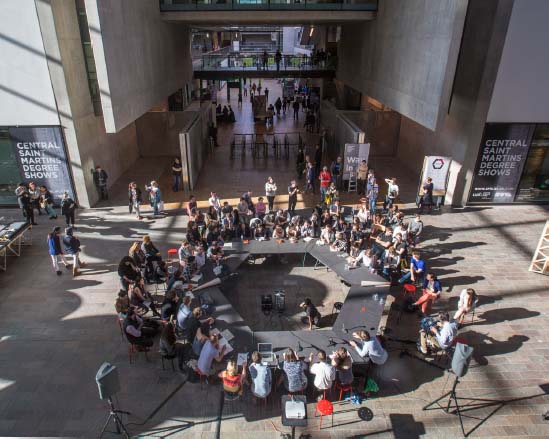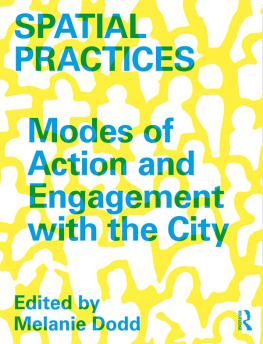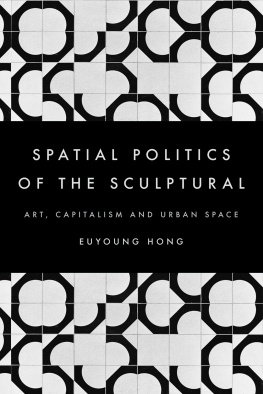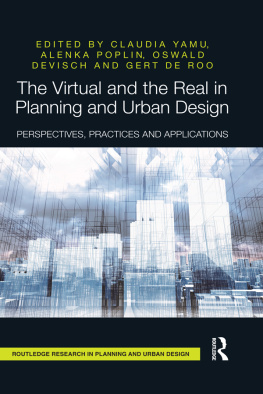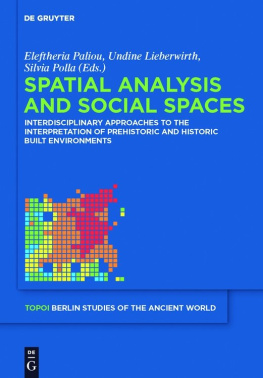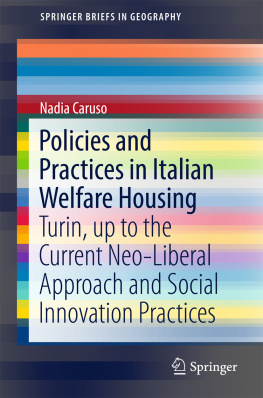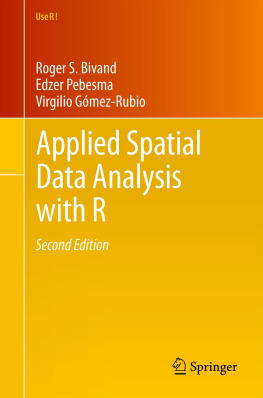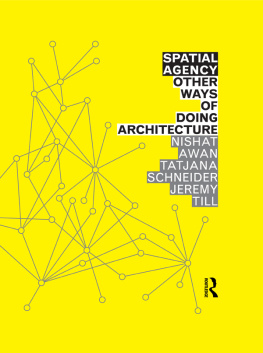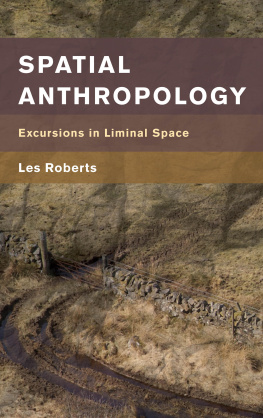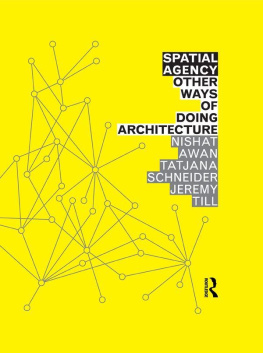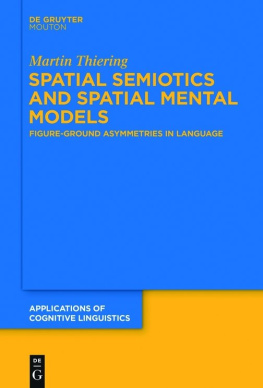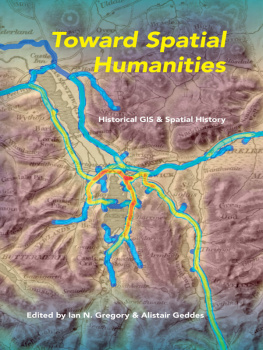SPATIAL PRACTICES
This book explores spatial practices, a loose and expandable set of approaches that embrace the political and the activist, the performative and the curatorial, the architectural and the urban. Acting upon and engaging with the public realm, the field of spatial practices allows people to reconnect with their own sense of agency through engagement in space and place, exploring and prototyping alternative futures in the here and now. The 24 chapters contain essays, visual essays and interviews, featuring contributions from an international set of experimental practitioners including Jeanne van Heeswijk (Netherlands), Teddy Cruz (Estudio Teddy Cruz + Fonna Forman, San Diego), Hector (USA), The Decorators (London) and OOZE (Netherlands). Beautifully designed with full colour illustrations, Spatial Practices advances dialogue and collaboration between academics and practitioners and is essential reading for students, researchers and professionals in architecture, urban planning and urban policy.
Melanie Dodd leads Spatial Practices at Central Saint Martins, University of the Arts London, UK, where she is also Associate Dean of Knowledge Exchange. She has previously taught at the University of Cambridge, UK, and RMIT University, Australia.
SPATIAL PRACTICES
Modes of Action and Engagement with the City
Edited by Melanie Dodd

First published 2020
by Routledge
2 Park Square, Milton Park, Abingdon, Oxon OX14 4RN
and by Routledge
52 Vanderbilt Avenue, New York, NY 10017
Routledge is an imprint of the Taylor & Francis Group, an informa business
2020 selection and editorial matter, Melanie Dodd; individual chapters, the contributors
The right of Melanie Dodd to be identified as the author of the editorial material, and of the authors for their individual chapters, has been asserted in accordance with sections 77 and 78 of the Copyright, Designs and Patents Act 1988.
All rights reserved. No part of this book may be reprinted or reproduced or utilised in any form or by any electronic, mechanical, or other means, now known or hereafter invented, including photocopying and recording, or in any information storage or retrieval system, without permission in writing from the publishers.
Trademark notice: Product or corporate names may be trademarks or registered trademarks, and are used only for identification and explanation without intent to infringe.
British Library Cataloguing-in-Publication Data
A catalogue record for this book is available from the British Library
Library of Congress Cataloging-in-Publication Data
Names: Dodd, Melanie, editor.
Title: Spatial practices : modes of action and engagement with the city / edited by Melanie Dodd.
Other titles: Spatial practices (Routledge (Firm))
Description: New York : Routledge, 2019. | Includes bibliographical references and index.
Identifiers: LCCN 2019007279| ISBN 9780815351863 (hb : alk. paper) |
ISBN 9780815351870 (pb : alk. paper) | ISBN 9781351140041
(ebook : alk. paper)
Subjects: LCSH: Space (Architecture) | Architecture and society.
Classification: LCC NA2765 .S615 2019 | DDC 720.1/03dc23
LC record available at https://lccn.loc.gov/2019007279
ISBN: 978-0-8153-5186-3 (hbk)
ISBN: 978-1-351-14004-1 (ebk)
Typeset in Univers LT Std
by Servis Filmsetting Ltd, Stockport, Cheshire
Contents
Chapter 1 Space is always political
Melanie Dodd
Chapter 2 Protest as a spatial practice
Carl Fraser
Chapter 3 Commons as public: re-inventing public spaces in the centre of Athens
Ursula Dimitriou
Chapter 4 Poor relations: community activism as spatial practice
Donna Turnbull
Chapter 5 Popular planning: a conversation with Daisy Froud
Melanie Dodd
Chapter 6 A long-game of resistance: Hugo Hinsley and Support Community Design Building Service
Alex Warnock-Smith
Chapter 7 Do-It-Yourself: a conversation with Nicolas Henninger, EXYZT
Shumi Bose
Chapter 8 Reclaiming the city: bottom-up tactical spatial practices and the production of (social) space
Oscar Brito
Chapter 9 The making of the Canning Town Caravanserai
Cany Ash and Ash Sakula
Chapter 10 Of Soil and Water: Kings Cross Pond Club
Eva Pfannes and Sylvain Hartenberg, OOZE
Chapter 11 Training for the not-yet: a conversation with Jeanne van Heeswijk
Melanie Dodd
Chapter 12 5 past 1 until 5 to 2 (on Thursdays)
Anna Hart and Tilly Fowler, AiR
Chapter 13 Glastonbury: Instant City
Juliet Bidgood
Chapter 14 As if a cloud had come down: a conversation with Markus Bader, raumlabor
Andreas Lang
Chapter 15 Spatial narratives: a critical position
Tricia Austin
Chapter 16 Telling stories: interactions and experiences on the civic stage
David Chambers and Kevin Haley, Aberrant
Chapter 17 Rehearsing fictions: a conversation with The Decorators
Melanie Dodd and Shumi Bose
Chapter 18 Disruptive praxis: critical proximities at the border: 10 notes on the redistribution of knowledges across walls
Teddy Cruz and Fonna Forman
Chapter 19 Fuzzy edges: a conversation with Liza Fior, muf Architecture/Art
Melanie Dodd
Chapter 20 Design for organizing: a conversation with Damon Rich and Jae Shin, Hector
Melanie Dodd and Shumi Bose
Chapter 21 Solidarity and freedom: educating for spatial practices
Jeremy Till
Chapter 22 Pedagogical tools for civic practice
Andreas Lang
Chapter 23 New municipalism: a conversation with Finn Williams and Pooja Agrawal, Public Practice
Melanie Dodd and Shumi Bose
Chapter 24 Socializing practice: from small firms to cooperative models of organization
Aaron Cayer, Peggy Deamer, Shawhin Roudbari and Manuel Shvartzberg Carri
This book was developed from a series of public events held in the Crossing at Central Saint Martins over three successive years from 2014 to 2016; events which at the time also formed part of the London Festival of Architecture. The Contested Space Round Tables focused on socially and politically engaged spatial practices, and were staged around a public round table in the Spatial Practices Programme Degree Show (). The contributors included staff, students and visiting practitioners, many of whom associated with the Programme via ongoing roles, workshops or guest residencies. In hindsight, offering a forum of public debates on spatial practices in a privately owned public space (POPS) at the centre of Europes largest regeneration site in Kings Cross was quietly radical. The speakers and audiences deliberately included and accommodated an expansive range of actors from performance artists to community activists, from spatial practitioners to government planners, from writers to developers not to mention passers-by and the general public who strolled by to listen in. These conversations have provided onward inspiration and this book therefore owes a debt of thanks to all the people who were responsible for co-creating these events, and for the staff, students and audiences who participated.
